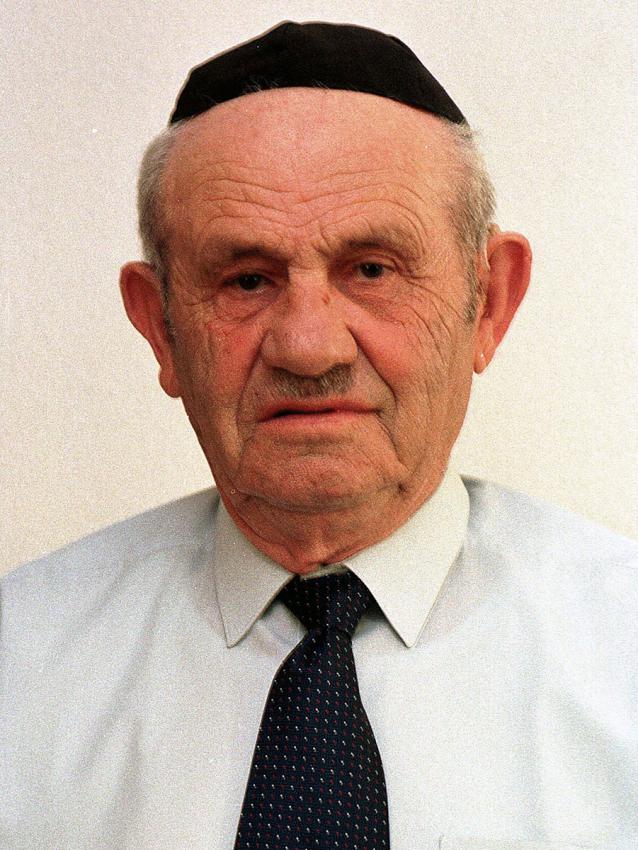Mordechai Wiesel lit one of six torches at the State Opening Ceremony of Holocaust Remembrance Day at Yad Vashem in 2001.
Mordechai Wiesel was born in 1915 in the town or Biechken, in the district of Marmoresch, Czechoslovakia, the thirteenth child of 21 brothers and sisters.
With the outbreak of WWII, Biechken came under Hungarian sovereignty, and Mordechai was drafted into compulsory military service.
After one year of service, he was transferred to a support unit that consisted entirely of Jews. The conditions in the army were unbearable and the soldiers suffered greatly from cold, hunger, hard labor, and humiliation by the antisemitic commanders. In 1941, Mordechai’s troop was transferred to Horodenka, where while assisting the Jews who were gathered there in the open field, Mordechai found, among them, his younger brothers. His younger brothers were later transported to Kamenets-Podolski, where they were murdered, and his older brothers perished in Auschwitz with their families. Of the Weisel family’s 21 children, only three survived.
In January 1941, Mordechai was released from me army. For months, he wandered among the villages and in the woods trying to survive while suffering from hunger. In a village near Solotvina he was caught and was tortured by the Gestapo. He was transported to Auschwitz sub-camp, Buna-Monovitz, in April 1944, where he worked as a forced laborer until January 1945. That month, he was led on a death march from Auschwitz to Germany, under conditions of severe cold, hunger, and thirst, until he arrived at Bergen-Belsen. He was liberated from Bergen-Belsen in May 1945.
He immigrated to Israel after his imprisonment in a Cyprus internment camp. Today, he has two children, seven grandchildren, and one great-grandson.


